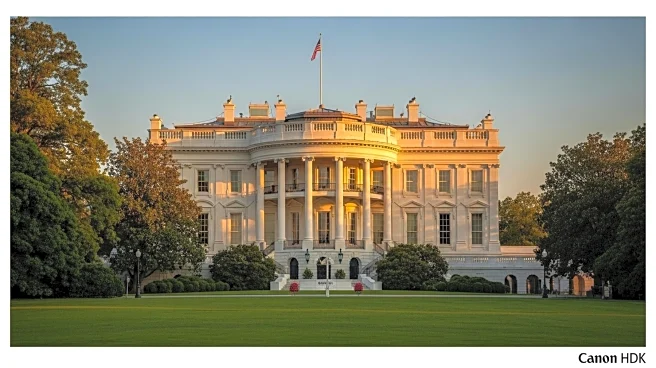What's Happening?
The White House is defending the legality of President Trump's tariffs, despite a court ruling them illegal. These tariffs remain in place as the administration faces legal challenges. Concurrently, there is a looming deadline for Moscow-Kyiv talks, with Monday set as the date for these discussions to be scheduled. The geopolitical situation is further complicated by the presence of warships off the coast of Venezuela, indicating heightened tensions in the region. The administration's stance on tariffs and its approach to international negotiations are under scrutiny as these developments unfold.
Why It's Important?
The defense of tariffs by the White House is crucial as it impacts U.S. trade relations and economic policy. Tariffs can affect domestic industries by altering import costs and influencing market dynamics. The legality of these tariffs is a contentious issue, with potential implications for international trade agreements and diplomatic relations. The deadline for Russia-Ukraine talks is significant in the context of ongoing geopolitical tensions, with potential consequences for regional stability and U.S. foreign policy. The presence of warships near Venezuela adds another layer of complexity, potentially affecting U.S. relations with Latin American countries.
What's Next?
The administration may face continued legal challenges regarding the tariffs, with potential appeals or adjustments to policy. The outcome of the Russia-Ukraine talks could influence U.S. diplomatic strategies and international alliances. Stakeholders, including political leaders and economic analysts, will likely monitor these developments closely, assessing their impact on global trade and security. The situation in Venezuela may prompt further diplomatic or military actions, depending on the evolving geopolitical landscape.










